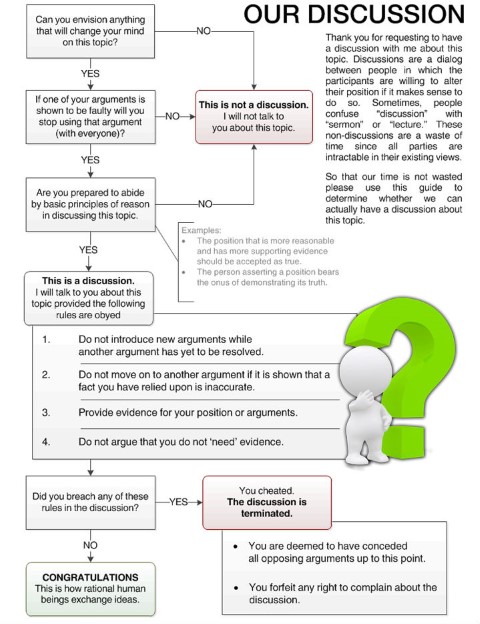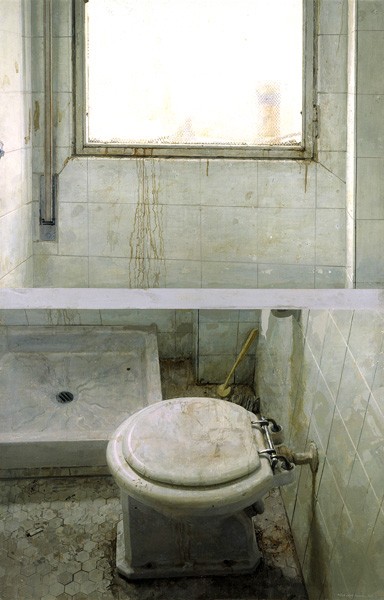-
Home / How to observe reality
Was this valuable to you?
other links and editorials from Clarisse88
Observing reality truthfully is an essential tool for human development. It is the tool that allows us to act in accordance with our environment, to modify it, and to enrich our lives. Observing reality increases human knowledge but, to do so, we must consciously perceive and regard with attention the world around us. Man has observed reality since his beginning. Humanity has gone from living in caves and learning about fire to well-developed societies. However, the truth is that, nowadays, not many people know how to observe reality properly. I think this triggers many of the problems we have. As an artist and a realistic painter, I think about this often. How do we know when we are properly interpreting and interacting with reality? This is how I see it.
Levels of Observance
Biologically, we can only observe reality through our own will. To do this, we use our natural senses. I think there are three levels for observing reality:
-
Realism: Realism is perceiving reality according to our physical experiences as provided by our senses and integrating those perceptions through our conscious mind. For example, when we exercise, we sense our body's thirst and then drink water to prevent dehydration. This is a man committed to reality and acting based solely upon it.
-
Figuration: We all have the capability to observe reality, but sometimes we don't see the full picture. Consequently, we create our own ideas to fill in the blanks or to replace the facts we don't think apply (or don't like). For example, imagine you see a traffic accident where someone gets seriously injured. You go to a party and tell the story. Everyone is very interested and you're enjoying the attention. The discussion turns to how badly hurt he was. So you tell them he died. You don't know it as a fact, and it seems plausible to you given the facts that you do know. Besides, it's just a little embellishment. This is a man who just committed treason against reality.
-
Negation: It's not clear to me why, but I see it often - those who refuse to see reality at all. Of course I understand that there are some who aren't capable of seeing reality (e.g., a man in a coma), but there are others who just seem to not only completely ignore the facts but also believe ideas without any rational basis. Imagine someone who believes he can breath underwater naturally without considering the physiology of his own lungs. The result is immediate: death.
The choice we make among each of these methods is easy, and we do so many times each day. The choice is easy because we each have our own standards for what we want to achieve. But if we're not smart about how we choose to perceive reality, or if we choose not to act according to reality, the impact on human life can be severe. For the rational person, realism should be the clear and logical choice. And as rational people are the only ones I'm interested in anyway, I'll assume that, if you're continuing to read, this is what you would choose.
Measuring Our Observance of Reality through Art
Nowadays, it is easy to tell how people - the individuals which conform in a society - observe reality. We can see it in politics, economics, education, philosophy... and my passion: art. For example, the paintings "The Birth of the World" and "Suprematist Composition: White on White" are representative samples of one of the most popular ways to perceive reality in the contemporary occidental culture.
Both are proudly showed in New York's famous MOMA. Both are some of the most expensive pieces in the collection, and are considered some of the most famous pieces of art worldwide.
However, if we just judge them by what they are in a material sense, it seems obvious that the main common characteristic of these pieces is just a poor level of realism when it comes to observance and interpretation of reality.
My line of reasoning is very simple: MOMA is one of the most respected institutions of art worldwide, and it is a reflection of American society's culture. In fact, I think art is a great reflection of a society's philosophy. What does this imply from a philosophical perspective? Do you think that with such a low level of realism at perceiving reality we can thrive as individuals?
As I've mentioned previously, a piece of art has integrity when it represents the artist's values. The artwork that sells results from the standards of the buyer and/or the majority. Additionally, the artwork that sells also reflects the political environment, as art is highly regulated (e.g., via copyright laws). So when you look at what artists are creating, and when you look at what art is selling (and the prices they are selling at), you can gain a good understanding of how the mainstream views reality.
To illustrate this point, observe that US president Obama has broken most of his promises. Therefore, his words and actions are not a commitment to truth and, thus, reality. Philosophically, you can compare this to Marcels Duchamp's piece "The Passage from Virgin to Bride," as he claims it to be a woman in the process of losing her virginity. Is that what you see?
The point is this: both in politics and in art, if you want to understand how a person perceives reality, look past their words and focus on their actions.
Let's take another example. Hyperrealism is a type of painting that closely resembles a photograph. For a hyperrealistic painting to be of high quality, we first must perceive reality as it is. Then, we have to understand the physical aspects of reality and perception, such as light and color, in order to create the image on a canvas. Additionally, we have to understand and study the properties of the materials we are using, as those are also parts of reality. Finally, we integrate all of this knowledge into our minds, and use our intelligence to develop our creations. In other words, representing reality properly in a hyperrealism painting requires the proper recognition of reality in all aspects. To choose otherwise will lead to a lower quality rendering.
In "A grungy view of Toilet and Window," the treatment of forms and colors is done in such a manner to emphasize their correspondence to the ordinary visual experience. The painting looks like a photograph, does it not? This is an example of an artist who is committed to reality.
Conclusion
People who are successful in disciplines like science or math didn't get that way by figuration or negation. It is only realism that helps us achieve anything of substance. You can't make an airplane or a computer or even a piece of paper by ignoring how reality works, yet people do this all the time when it comes to social areas like politics, relationships, or art.
As a realistic painter, I find that, through experience, my ability to perceive has become almost mechanical. For example, I often can look at something and automatically identify the pigments that each element of reality has. I can then, almost instantaneously, translate that perception into a painting. I think observing reality in other aspects works the same way - the more often you take a realism approach, the better you are able to integrate that knowledge and translate it into something useful for your own happiness.
Creation provides achievement and increases our quality of life. But, we can't forget that a real, quality improvement requires realism because, without it, we won't see real change. The consequences of the method we use to observe reality can have a huge impact on ourselves as individuals and as a society. I hope more people will choose realism, but I also don't fake reality and, right now, I don't have much hope.
About philosophy
 philosophyhttps://valme.io/c/philosophyc_prompt
philosophyhttps://valme.io/c/philosophyc_prompt“Too often... we enjoy the comfort of opinion without the discomfort of thought," said John F. Kennedy in 1962.
The term philosophy comes from two Greek words meaning love of wisdom. Well put. Please apply it here.






A very similar perspective: Art for no one’s sake.